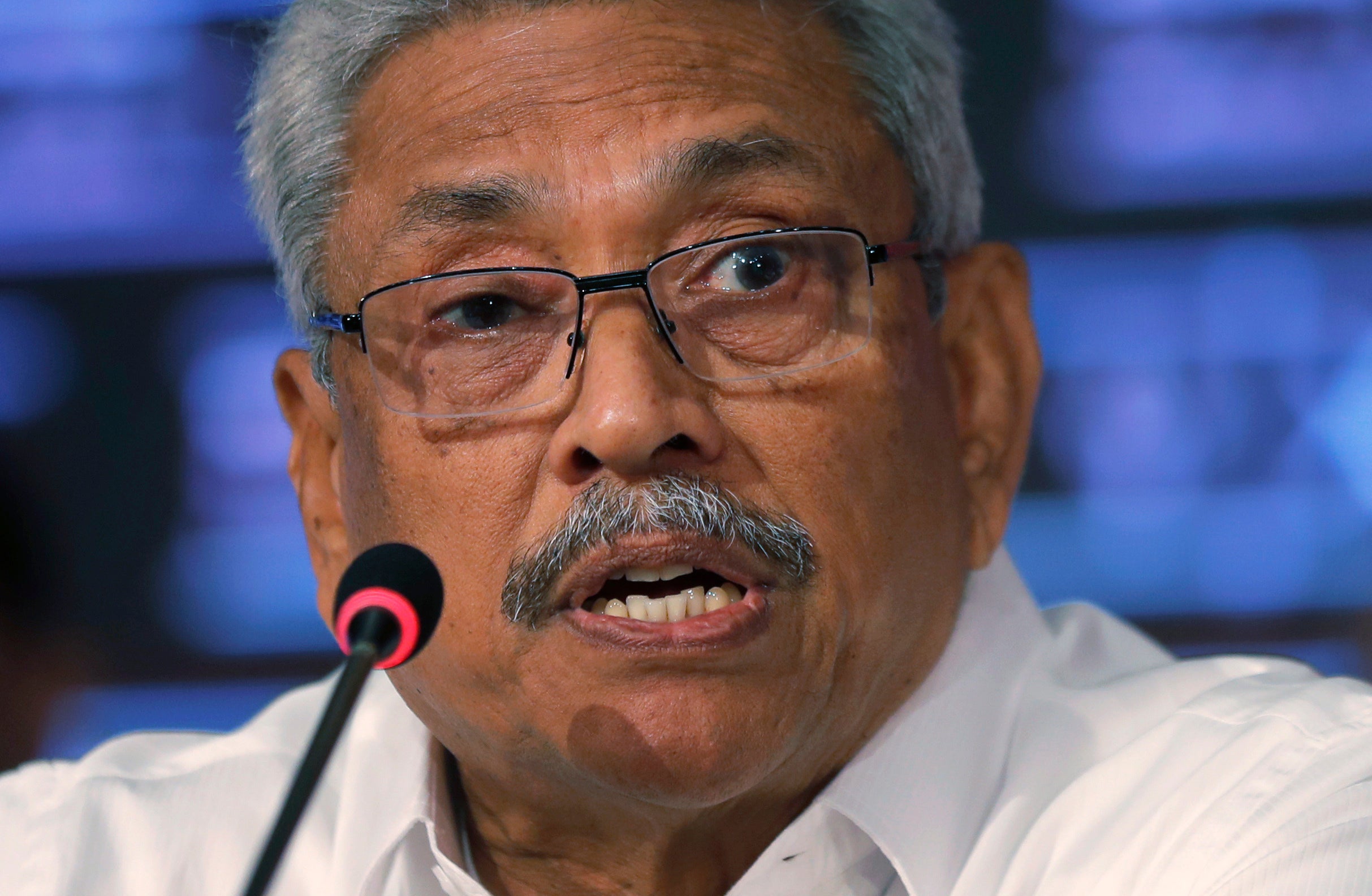Former Sri Lankan president denies that suicide bombings were staged to enable his election
Former Sri Lankan President Gotabaya Rajapaksa has denied allegations in a British television program that Islamic State-inspired extremists were used to carry out suicide bomb attacks in 2019 to create insecurity in the country and help him win election later that year

Former Sri Lankan President Gotabaya Rajapaksa on Thursday denied allegations in a British television program that Islamic State-inspired extremists were used to carry out suicide bomb attacks in 2019 to create insecurity in the country and help him win election later that year.
“To claim that a group of Islamic extremists launched suicide attacks in order to make me president is absurd,” Rajapaksa said in a public statement, his first since being ousted from power in July last year.
He said the documentary on Britain's Channel 4 television was “mostly an anti-Rajapaksa tirade.”
In the program broadcast Tuesday, Channel 4 interviewed a man who said he arranged a meeting between a local Islamic State-inspired extremist group, National Thowheed Jamath, and a top state intelligence official loyal to Rajapaksa to formulate a plot to create instability and enable Rajapaksa to win the presidential election. Rajapaksa, a former senior defense official, was seen as a strong law-and-order candidate.
National Thowheed Jamath is accused of carrying out six suicide bomb attacks on Easter Sunday in 2019 which targeted churches and tourist hotels and killed 269 people. The attacks revived memories of frequent suicide bombings during the country's quarter-century civil war with Tamil Tiger rebels which ended 10 years earlier in 2009.
Fears over national security enabled Rajapaksa to sweep to power. He was forced to resign in July 2022 during mass protests over an economic crisis.
Azad Maulana, the man interviewed by Channel 4, was a spokesperson for a Tamil Tiger breakaway group that later became a pro-state militia and helped the Sinhalese-dominated government defeat the rebels and win the civil war.
Maulana said he arranged a meeting in 2018 between Islamic State-inspired extremists and a top intelligence officer at the behest of his boss at the time, Sivanesathurai Chandrakanthan, the leader of the rebel breakaway group who later became a politician.
Rajapaksa's older brother, Mahinda Rajapaksa, had been defeated in the 2015 elections after 10 years as president.
Maulana said Chandrakanthan met the brother of Zainee Hashim, the leader of National Thowheed Jamath, in prison while Chandrakanthan was detained on murder allegations and determined that the group could be useful in creating instability.
He said Chandrakanthan arranged for Maulana to help obtain Hashim's release by providing him with legal and financial assistance.
Once released, Hashim arranged a meeting between National Thowheed Jamath and a top intelligence official close to Rajapaksa, Maulana said.
Maulana told Channel 4 that he did not participate in the meeting, but that the intelligence officer told him later that creating insecurity was the only way to return the Rajapaksa family to power.
After security camera videos of the bombings were released, Maulana said he saw that the attackers carrying bomb-laden backpacks were people he had arranged to meet with the intelligence officer.
Chandrakanthan has not responded to phone calls from the AP seeking comment. In a speech Wednesday, he accused Maulana of making claims to get his asylum application approved in the country where he is currently living. He said he was in prison during that period and questioned how he could have coordinated a terror attack while in detention.
Channel 4 reported that Maulana has been interviewed by United Nations investigators and European intelligence services about his claims.
Rajapaksa said in his statement that he did not have any contact with the intelligence officer named in the documentary from the time he resigned as defense ministry secretary in 2015 until he became president in 2019. He said the official was not part of any intelligence agency during that period and allegations that he met the suicide bombers were a fabrication.
“This latest film by Chanel 4 is mostly an anti-Rajapaksa tirade aimed at blackening the Rajapaksa legacy from 2005 onwards and is a tissue of lies just like the previous films broadcast by the same channel,” Rajapaksa said, referring to a previous Channel 4 documentary that alleged grave human rights violations by Sri Lankan soldiers in the final phase of the civil war.
Bookmark popover
Removed from bookmarks